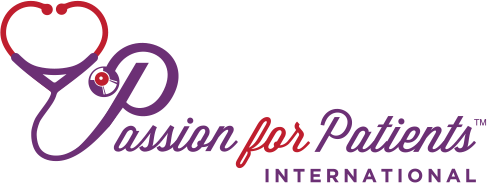Have you ever been frustrated with your patients when they don’t follow your instructions or with your staff when they don’t do what you ask? Do your patients or staff ever look at you like they heard what you said, but do not have any idea what you meant?
Jargon vs. Conversational
Sometimes a person simply doesn’t hear what another is saying. Sometimes they are not listening. Or, distractions draw their attention elsewhere. Sometimes, they heard it and thought they understood, only to discover later that they understood something completely different than what was intended.
In healthcare, the likelihood of a communication breakdown is greatly enhanced because the communications can involve complex issues. After all, we are not simply asking someone to pick up dry cleaning. In the medical profession, where technical terms can be very complex and a patient can be very nervous, communicating is even more challenging.
Let’s be honest…often, medical instructions are not given clearly, not heard clearly, or not understood clearly.
Let me illustrate this another way. We lost my father three years ago; he had been diagnosed with multiple myeloma. Once we learned of the diagnosis, we all knew the prognosis. The problem was his physician made the diagnosis – and told my parents – several months before the rest of the family knew. You see, my father was 86, didn’t hear well and didn’t feel well when he heard the words ‘multiple myeloma’. My mother, then 84, was with him and she, like my father, was of the generation and the mindset to “never question the doctor”. It was only when one of my sisters accompanied my parents to their next appointment and heard the words bone marrow testing, transfusions, and more, did we learn that our parents had heard the words ‘multiple myeloma’ six months prior. They simply did not understand.
Jargon vs. Conversational
I can’t help but think of the communication difficulties encountered in the healthcare profession. Trying to explain test results or giving treatment instructions to patients who may have just received a diagnosis they didn’t expect is never easy. Simply repeating instructions is a waste of everyone’s time. Attempting to communicate with patients in language they understand, in a very busy environment, can be time consuming and terribly frustrating.
Patients often have other things on their minds when they are receiving a diagnosis or ‘next step’ instructions. They aren’t trying to be difficult. They are just dealing with distractors that may escape the eye of the medical professional preparing patients for the exit process from their physicians’ office.
Through Passion for Patients™ training, staff will be able to identify barriers to communication and learn specific techniques on how to overcome them. There are unique interpersonal skills that can be practiced by medical staff to alert them when a communication breakdown is likely to occur.
As the teams become proficient in practicing these techniques, they are more successful in dealing with patients in even the most difficult circumstances. Please contact us to learn more.


